Caesar’s Three Big Problems
£3.00
This lesson looks at three big problems Caesar had when he invaded Britain in 55 BC. Dover beach was too narrow, the cliff tops were full of angry Britons and the cavalry needed to deal with them was nowhere to be seen.
As well as English and history skills the Evidence-Based Learning skills developed in this lesson include collaborative learning and thinking skills. This lesson also offers pupils the opportunity to master peer assessment.
Description
Each evidence-based learning (EBL) Roman history resource in this set is a complete lesson which uses the history curriculum as a framework through which each of the eight EBL skills can be mastered. Each resource has “mastering” one EBL skill as its central focus and all eight EBL skills are covered more than once in these lessons.
All eight EBL skills are better gained working with a partner so much of the work in these lessons is collaborative. These resources will ensure that pupils can master and use EBL skills regardless of their ability.
Each Roman history lesson will develop a single EBL skill through:
1) A “Before You Start” page that introduces the EBL skill.
2) Opportunities to master this skill during the lesson.
3) An “After You Finish” page that offers pupils the chance to evaluate their learning experience (of the lesson and the EBL skill) and to identify their next step in using the EBL skill.
The skills in bold below are all the EBL skills developed in this Roman lesson. Click on each skill to learn more about that skill.
- Collaboration
- Thinking Skills
- Peer Assessment
- Peer Teaching
- Self-Assessment
- Metacognition
- Self-Regulation
- Independent Learning
1 review for Caesar’s Three Big Problems
Only logged in customers who have purchased this product may leave a review.
Related products
-
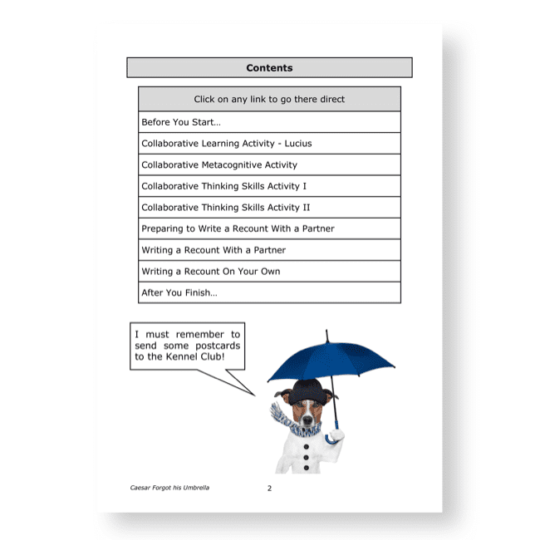
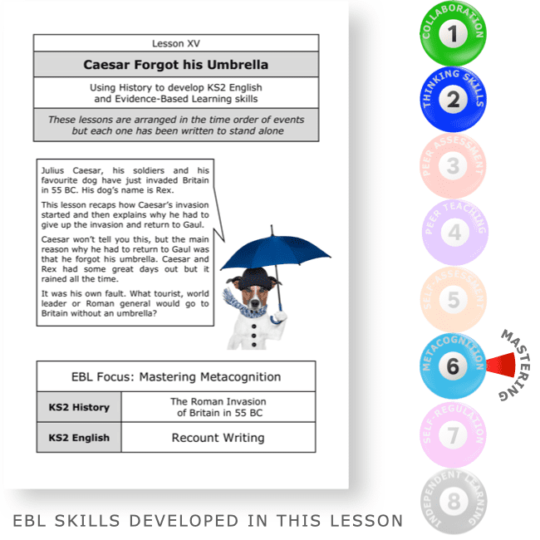
Caesar Forgot His Umbrella
£3.00 Add to basket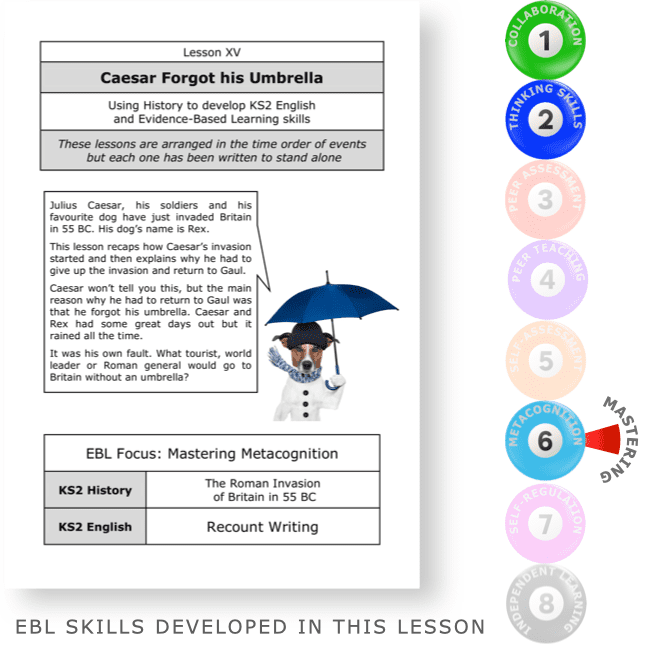 £3.00Add to basket
£3.00Add to basketJulius Caesar, his soldiers and his favourite dog have just invaded Britain in 55 BC. His dog’s name is Rex. This lesson recaps how Caesar’s invasion started and then explains why he had to give up the invasion and return to Gaul.
Caesar won’t tell you this, but the main reason why he had to return to Gaul was that he forgot his umbrella. Caesar and Rex had some great days out but it rained all the time. It was his own fault. What tourist, world leader or Roman general would go to Britain without an umbrella?
As well as English (writing a recount) and history skills the Evidence-Based Learning skills developed in this lesson include collaborative learning and self-assessment. This lesson also offers pupils the opportunity to master metacognition.
VIEW -


Romans, Taxes, and Donkeys
£3.00 Add to basket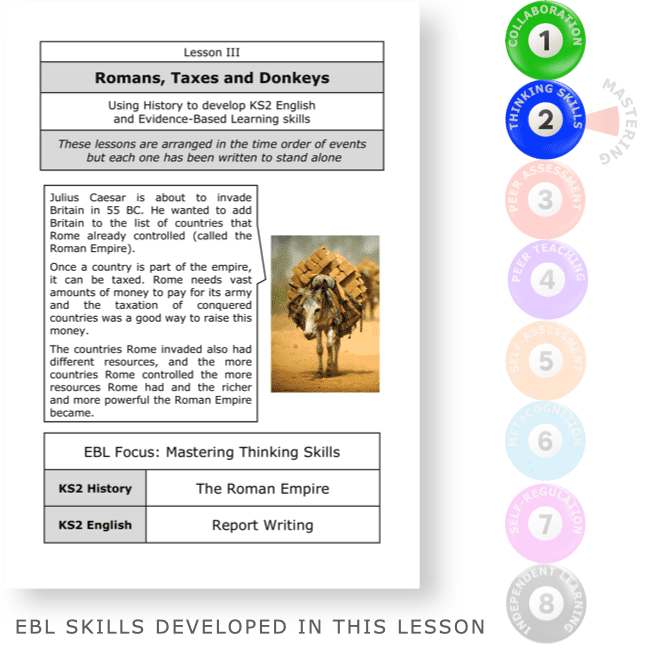 £3.00Add to basket
£3.00Add to basketJulius Caesar is about to invade Britain in 55 BC. He wanted to add Britain to the list of countries that Rome already controlled (called the Roman Empire). Once a country is part of the empire, it can be taxed. Rome needs vast amounts of money to pay for its army and the taxation of conquered countries was a good way to raise this money. The countries Rome invaded also had different resources, and the more countries Rome controlled the more resources Rome had and the richer and more powerful the Roman Empire became.
As well as English (writing a report) and history skills the Evidence-Based Learning skills developed in this lesson includes collaborative learning. This lesson also offers pupils the opportunity to master thinking skills.
VIEW -


Caesar Has Big Plans
£3.00 Add to basket £3.00Add to basket
£3.00Add to basketThis lesson explains how the Roman invasion of Britain was just part of Caesar’s bigger plan to rule Rome and its empire. It also has a summary of the events in the first part of the invasion in 55 BC. Things didn’t go that well for Caesar, so he might have to give it another go next year!
As well as English and history skills the Evidence-Based Learning skills developed in this lesson include collaborative learning, self-assessment and thinking skills. This lesson also offers pupils the opportunity to master self-regulation.
VIEW -


Even More Problems for Caesar
£3.00 Add to basket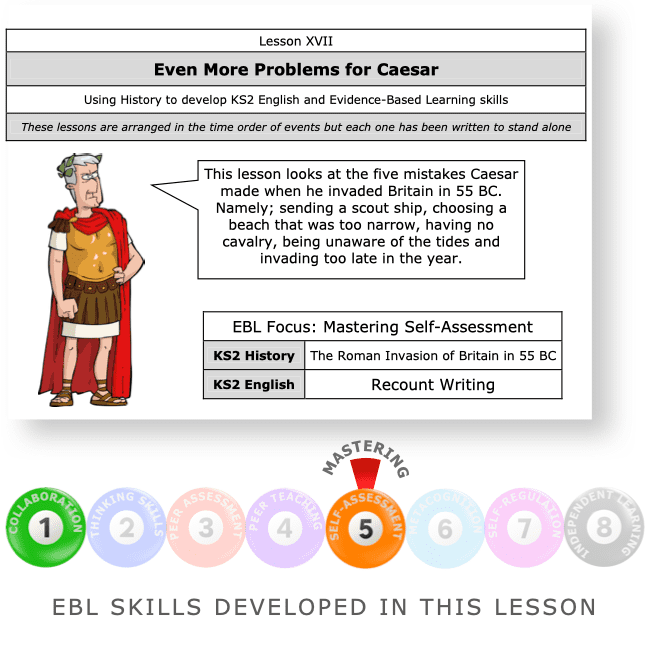 £3.00Add to basket
£3.00Add to basketThis lesson looks at the five mistakes Caesar made when he invaded Britain in 55 BC. Namely; sending a scout ship, choosing a beach that was too narrow, having no cavalry, being unaware of the tides and invading too late in the year.
As well as English (writing a recount) and history skills the Evidence-Based Learning skills developed in this lesson includes collaborative learning. This lesson also offers pupils the opportunity to master self-assessment.
VIEW

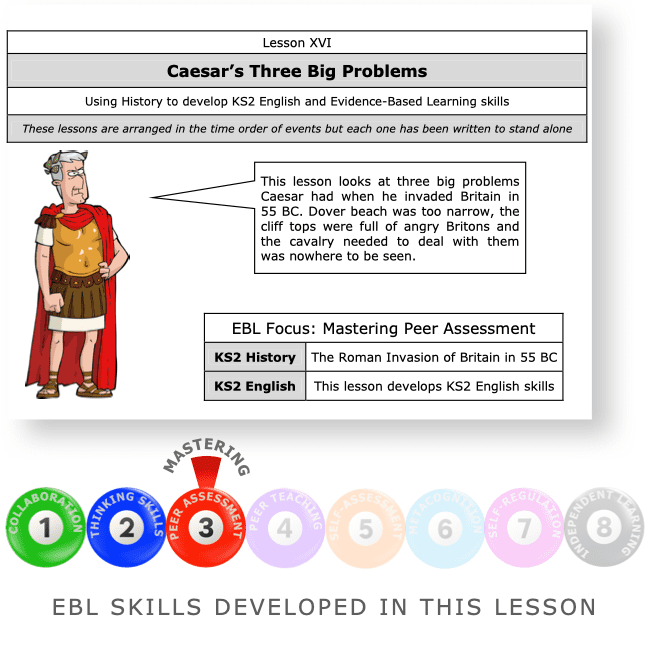
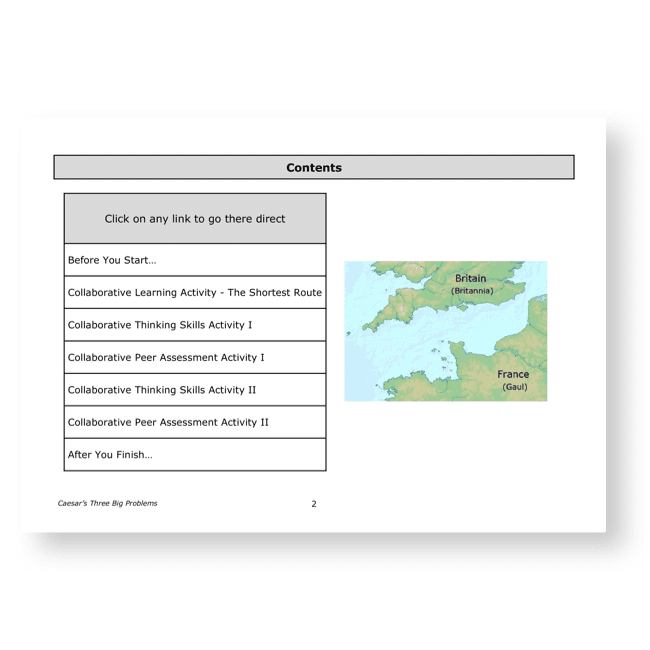
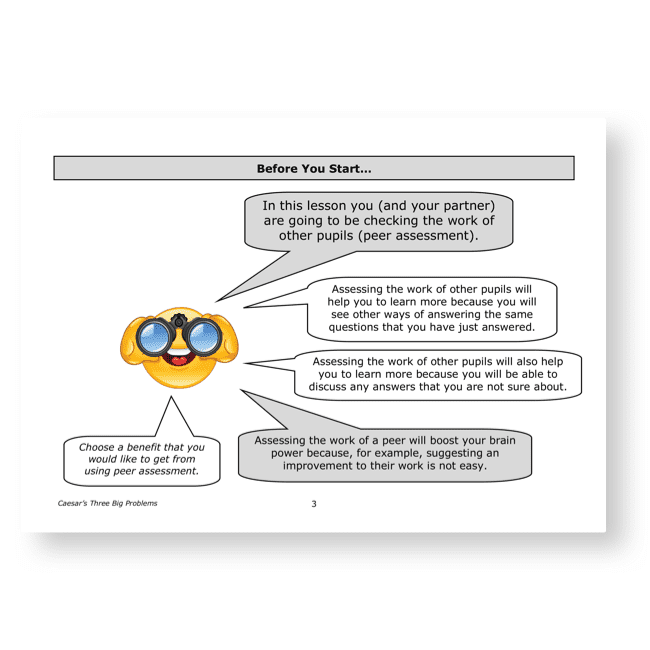
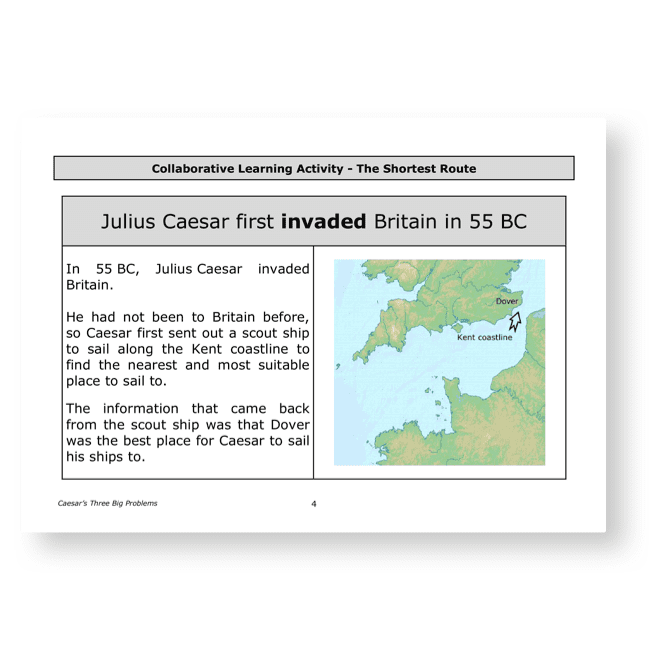
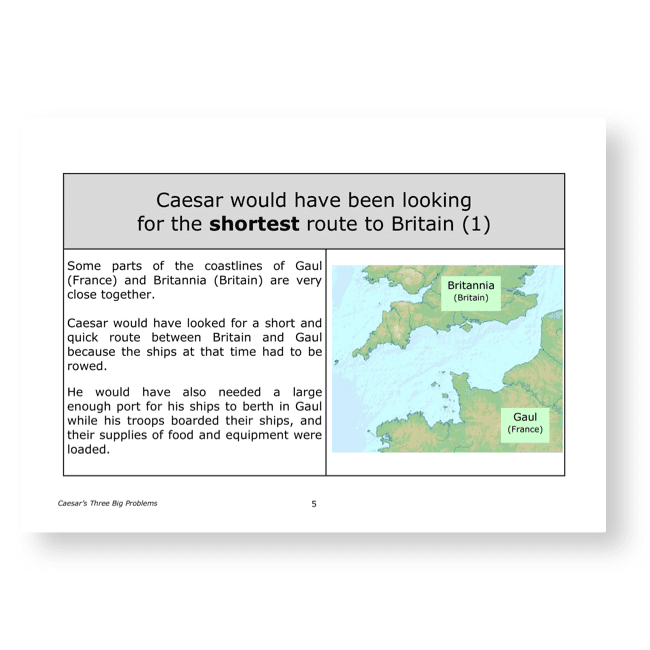
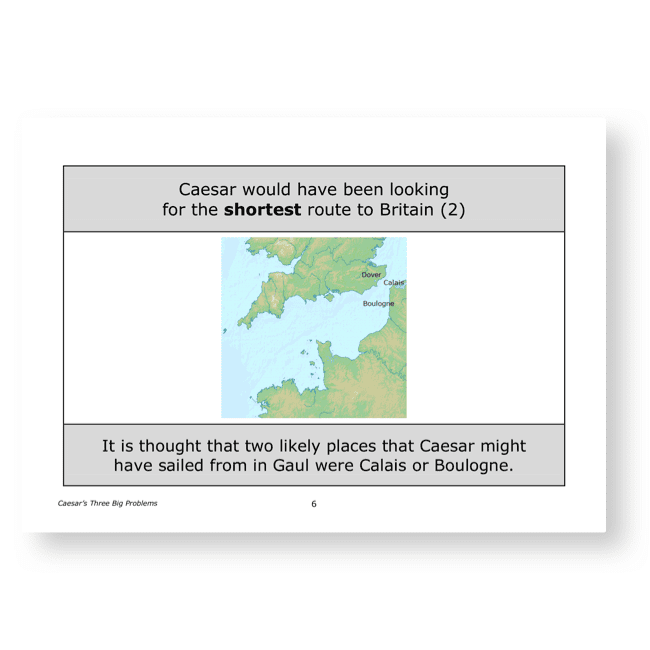
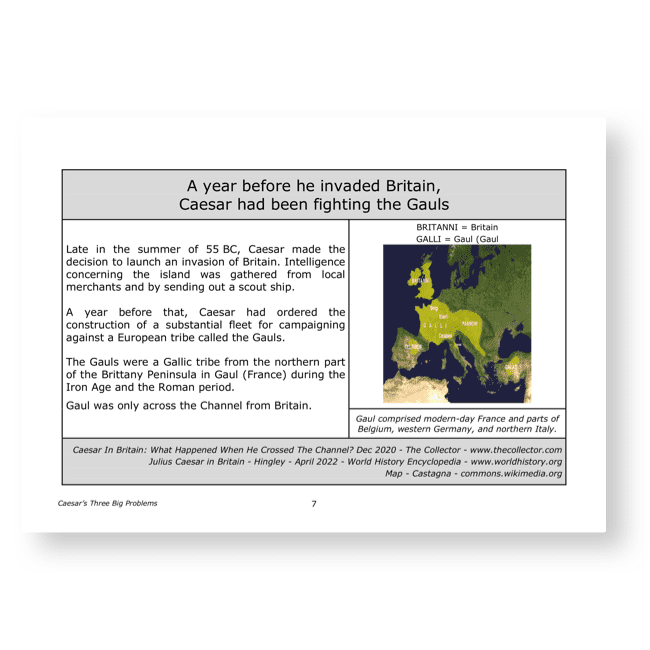
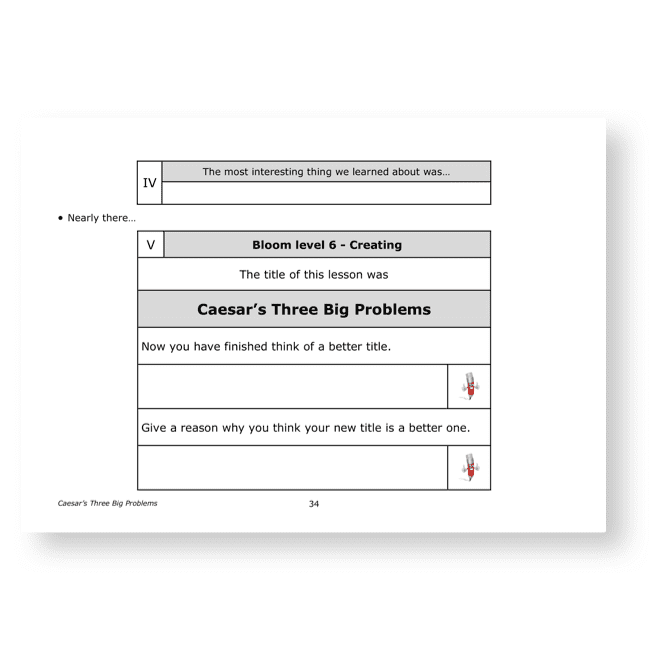
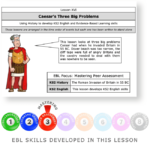
Philipem (verified owner) –
We asked a.i. to review this lesson. This is what it said:
Tackle Multiple Subjects with This Engaging Roman Invasion Lesson
Looking for a cross-curricular lesson that ticks boxes for English, History and develops invaluable evidence-based learning skills? Then check out “Caesar’s Three Big Problems” – an engaging lesson all about Julius Caesar’s first invasion of Britain in 55 BC.
The lesson centres on the three major issues Caesar faced upon arriving in Britain – a narrow beach unsuitable for landing at Dover, thousands of hostile Britons lined up on the cliffs above, and his crucial cavalry units being unaccountably delayed. Students will get insight into this key historical event while practicing skills like:
English:
– Writing clear explanations and analyses
History:
– Understanding the context, people and strategic decisions around the Roman invasion attempt
Evidence-Based Learning:
– Collaborative learning by working with partners
– Developing thinking skills by analysing and evaluating the problems Caesar faced
– Mastering peer assessment by evaluating each other’s work
The lesson materials provide excellent scaffolding for students, breaking down the peer assessment process step-by-step so they can become proficient in this valuable evidence-based learning technique.
Designed for Upper KS2 students in Years 5 and 6, the “Caesar’s Three Big Problems” lesson is part of a 25-lesson set covering the Romans’ invasion of ancient Britain. I’d give it ⭐⭐⭐⭐⭐ as a creative way to deliver an engaging, cross-curricular lesson!